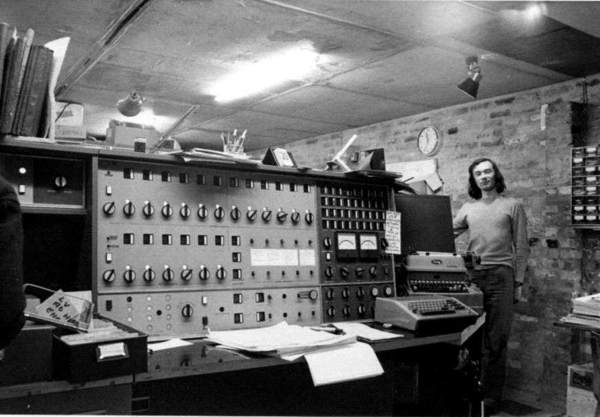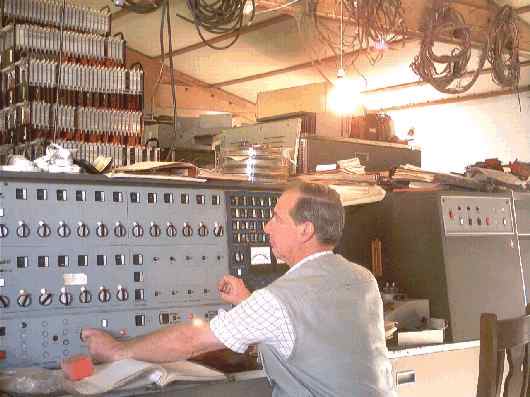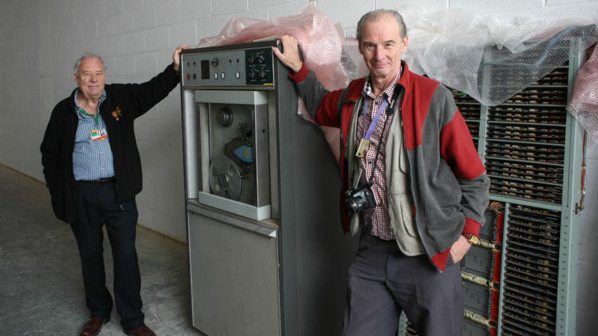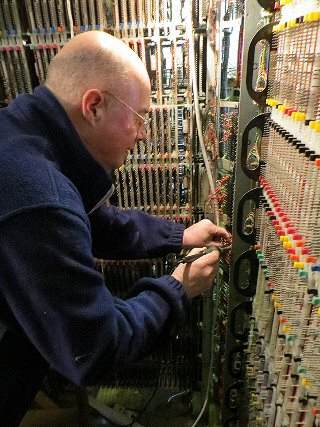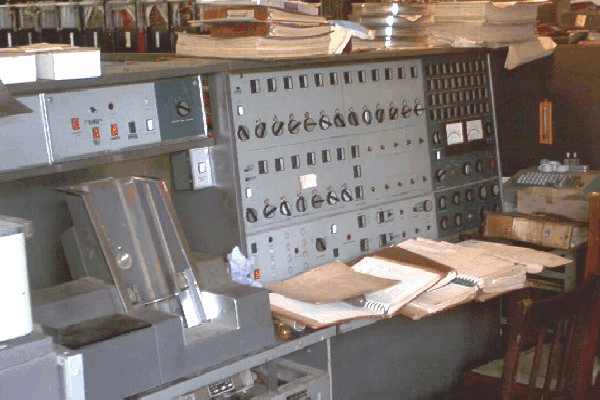| ICT 1301 - A 1960's Computer |
| Written by Sue Gee | ||||||
Page 2 of 2
Flossie at the University of LondonFlossie, which has Serial number 6, was the first customer delivery of this revolutionary model. It was bought by University of London for £250,000 (the equivalent of around £4.2m ($6.7 today). At the time of delivery it was still a pre-production model and had a few design problems that had to be resolved in situ in Senate House by computer engineers, including Rod Brown who is one of the computer conservationists responsile for the ICT 1301 Resurrection Project. Flossie spent the first phase of its working life collating the results of the GCE examinations, printing out pass-slips and certificates on the first proper commercial printer, and between times it provided a general accounting and administration facility for the university. Students Put Flossie to WorkIn about 1972 Flossie was replaced by an ICL 1900 series (ICL being the company formed as ICT absorbed other computer companies) but instead of being scrapped it was acquired by a group of students for £200 who used it for several years in a commercial venture, trading as Galdor Computing to provide computing services.
During the Galdor phase of its working life Flossie was subjected to numerous modifications - some of which were to make it fit in its new premises and others to make it suit changed times - in particular the fact that the UK currency had been decimalized so multibase arithmetic was no longer required.On the The ICT 1301 Resurrection Project website Stuart Fyfe explained: the sterling instructions were redundant, and we made some alterations to the mill to treat those commands as - plain 48 bit binary which was much more useful to us. The audience at The Science Museum looked horrified at our wrecking a quirky feature that characterised the 1300 series, but relaxed when I continued with - It's all documented, and can revert to sterling by operating a switch in one of the bays.
Flossie Farmed OutIn 1976 Roger Holmes noticed an advert in the Amateur Computer Club Newsletter that appeared to be offering the chance to acquire on of the last four ICT 1301s in commercial use as they were about to be scrapped. As things turned out he ended up buying Galdor's own machine spares, manuals, software and technical drawings for £150 and Flossie was again dismantled and rehoused - this time in a farm outbuilding in Kent. It was quarter of a century later that Rod Brown, as an engineer with ICT (later ICL) and had known Flossie in its University of London days and in its transition to Galdor, tried to discover what had happened to it subsequently. He tracked it down only to discover that is was "very non-functional" but after a lengthy email exchange a plan was hatched to restore it to working condition and in 2003 the ICT 1301 Resurrection Project got underway.
During the decade in which Rod Brown and Roger Holmes worked on the project, clocking up more than 2,500 man hours, they recorded their progress on Flossie's highly informative website. Although the goal of being able to retrieve its original software and re-record it on modern media has still to be realized, they have achieved another of their initial aims, which was to be able to display a 1960's machine to the public. The first Open Day was held in in 2008 and it has had six subsequent events when the public have been able to see what a 1960's mainframe computer was like, not just as a static exhibit but as a "moving, calculating, hot, noisy beast" as you can appreciate from this video.
via: ICT 1301 Resurrection Project
Flossie RescuedIn 2012, Flossie's 50th year, the machine faced being scrapped for the third time as the farm that had been her home since 1977 had been sold. Flossie received a good deal of media attention at the time and we reported Roger Holmes saying: The technologies in this machine need to be recorded for archaeological reasons. The foundation of the early British computer industry is enshrined in this machine. It is important they are available to future generations. It would be nice if it could end up at the Science Museum or Bletchley Park. Now this wish has materialized. The National Museum of Computing (TNMOC), which already houses Collosus and the Harwell Dekatron, is going to be its future home where it will again be brought back to life.
Commenting on this outcome Rod Brown, pictured on the right in this photo, said: The team and I are delighted with this news -- especially because TNMOC has such an outstanding track record of restoring computers and maintaining them in full working order. We look forward to the day that it can go back on display." Kevin Murrell, TNMOC Trustee, explained the place of the machine in the history of computing: "The ICT 1301 marks a transition from simply knowing how to build computers, to being able to install one in almost any office without needing special facilities. It had a fixed layout and all it required was enough space and reasonable air-conditioning, whereas earlier computers required special features such as false floors for cabling. "The ICT 1301 was ready for work! It transformed data processing in many businesses and used punched cards, magnetic tape reels and built-in printers."
The intricate work of dismantling Flossie was undertaken by computer conservationists, who have also offered to reassemble the machine in due course when the task of getting both the hardware and the software into fully working order will recommence.
The latest news is that not much seems to have happened at the restoration project since 2016 and most of the milestones are still TBA. Given that TNMOC recieves no governement funding and is dependent on donations this is hardly suprising - does the UK really not care about its computing history? Here's the latest (2020) video that attempts to explain what the problem is:
More InformationThe National Museum of Computing The ICT 1301 Resurrection Project ICT 1301 - Michael Milsom's Web Pages Related ArticlesFlossie - A Working Computer from the 1960s The Harwell Dekatron Computer (book review) 60th anniversary of world's first business computer LEO
Comments
or email your comment to: comments@i-programmer.info
To be informed about new articles on I Programmer, sign up for our weekly newsletter, subscribe to the RSS feed and follow us on Twitter, Facebook or Linkedin.
|
||||||
| Last Updated ( Friday, 04 February 2022 ) |
